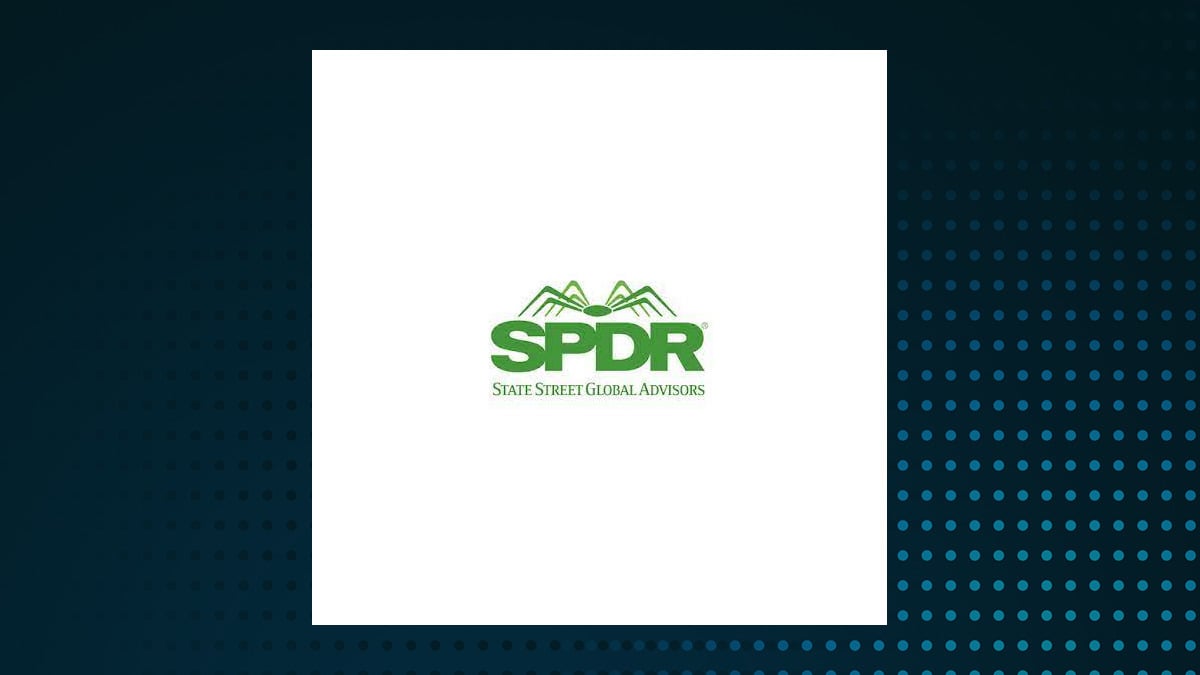Around the world, inside governments and companies, the rapid onset of an international tariff war sparked by U.S. President Donald Trump’s efforts to redraw global trade has forced the need for high-level strategizing.
Old playbooks are getting dusted off, and in some cases, Cold War doctrines once used to navigate arms races and other forms of conflict are being deployed in a new economic context. One of the war rooms in this battle resides inside a nondescript office tower in Waterloo, Ont., at the headquarters of Open Options Corp.

The firm, which got its start working with the CIA in the 1980s, specializes in strategic thinking – in particular, game theory, a field straddling economics and political science that uses mathematical models to guide human decision making in competitive situations. Game theory, a version of real-life chess rooted in a belief that players can outmaneuver their opponents by predicting moves many steps ahead, has experienced moments in the spotlight before. It helped keep the nuclear arms race from descending into Armageddon in the 1970s, designed the spectrum auctions that paved the way for cellphones in the eighties and nineties, and has been used more recently as a predictive tool for mergers and acquisitions in the corporate world.
Now, it’s being pressed into different service – as a way for businesses to understand their next steps in a highly unpredictable trade war. “As humans, we all have an emotional reaction to things,” said Niall Fraser, a former professor of management sciences at the University of Waterloo who founded the firm. “That emotion can cloud our thinking, cloud our judgement.
We can think, ‘Donald Trump’s tariffs are going to ruin my company, I’ve got to do something right away.‘” The goal is to take emotions – fear, aggression, knee-jerk reactions – out of the equation in an effort to contain the threat, fight back and minimize the damage. “The emotions can be dangerous in these circumstances because fundamentally, we’re not very good decision makers in the first place.
Because it’s hard for us to see ahead, to see the consequences of our actions,” Dr. Fraser said. U.
S. President Donald Trump touted his tariff announcement on April 2 as 'Liberation Day.' Carlos Barria/Reuters Seen through a game theorist’s lens, the world is now caught in what’s known as an escalation game.
Mr. Trump’s declaration this week of “Liberation Day” for the United States, by imposing tariffs he believes will raise billions of dollars in new revenue and revitalize American manufacturing, came with a warning to foreign governments: Don’t respond, or the levies will go up. “If you retaliate, there will be escalation,” U.
S. Treasury Secretary Scott Bessent said on Fox News this week. “If you don’t retaliate, this is the high watermark.
” Some governments have held back, Australia among them, deciding not to retaliate. They appear to be in the minority. In Canada, Prime Minister Mark Carney vowed to act with “purpose and force” in response, including matching U.
S. auto tariffs . Brazil passed an economic reciprocity law, and Ireland’s Prime Minister called for a “proportionate” response from Europe.
And early Friday, China said it would match the 34-per-cent tariffs imposed on its exports to the U.S. “This practice of the U.
S. is not in line with international trade rules, seriously undermines China’s legitimate rights and interests, and is a typical unilateral bullying practice,” China’s Finance Ministry said in a statement. The situation is alarming, but not unexpected, said Tim Jeske, a colleague of Dr.
Fraser and the president of Option Options. Escalation games are dangerous, but the damage to any player in backing down could be worse. “Escalation games are generally destructive.
They destroy value. Both parties will lose. The best strategy is to not get into one,” Mr.
Jeske said. “But once you’re in one, the strategy is to fully commit to it.” In 1987, Dr.
Fraser began developing software to speed up the process of ranking decisions, preferences and conflicts in game theory scenarios. When one of his papers was presented at a conference in New Orleans, it caught the attention of the CIA. The agency was looking for a way to game out the splintering of the Soviet Union, including micro scenarios such as the likelihood that the oil-rich region of Azerbaijan could descend into civil war.
Dr. Fraser received funding in exchange for working with the agency for five years. After that, Open Options ventured out on its own.
The company’s present-day international client list is kept confidential, but each pays a flat fee of $100,000 U.S. per project.
Previously, Open Options has worked with IBM, Chevron, Ford and Xerox. As escalation games go, a price war between two neighbouring gas stations is the most simplified version. One player makes an aggressive move to benefit themselves at the cost of others, which forces a choice: Either submit and accept harm, or push back at the risk of greater pain.
At each step, the players determine how much damage they are willing to accept in order to push back. Various forms of auctions are also basic versions of an escalation game. The ideal way out of these conflicts, Dr.
Fraser said, is to force a negotiation: “The war started,” he said. “Everything after the war starting is negotiation.” It’s an open question whether Mr.
Trump’s strategy all along has been to drive countries to the negotiating table on trade by threatening high tariffs at the outset, or whether the current course has been set, he said. But walking back a tariff war isn’t easy, particularly as tensions climb. “Negotiating out of an escalation game is really hard.
The easiest example is arms control talks back in the seventies. You can’t just have the USSR, as it was back then, and the U.S.
suddenly agree to get rid of all the nuclear weapons. It’s too big a jump, so you start really, really small,” Dr. Fraser said.
Following the announcement of President Trump's latest round of tariffs on Wednesday, Prime Minister Mark Carney vowed to act with 'purpose and force' in response to U.S. levies on Canadian products.
Adrian Wyld/The Canadian Press Mr. Carney, in announcing Canada’s countermeasures to U.S.
tariffs on Thursday, signalled his government’s intent to dig in. “While this is a tragedy, it is also the new reality,” the Prime Minister said. “We must respond with both purpose and force.
We are a free sovereign and ambitious country. We are masters in our own home.” He has also indicated Canada’s desire to negotiate.
During a call with the U.S. President the previous week, Mr.
Carney said the two countries have agreed to meet after the federal election on April 28. The collateral damage is starting to pile up. Global stock markets are suffering significant losses amid fears the U.
S. actions will drive the world into a steep economic downturn. And auto parts manufacturer Stellantis said this week it would shutter factories in Canada and Mexico for two weeks in the face of U.
S. tariffs, affecting 3,600 employees. The world is now in an economic stare down.
“Given the prospective damage to their own people, the American administration should eventually change course,” Mr. Carney said. “But I don’t want to give false hope.
The President believes that what he is doing is best for the American economy, he believes that it’s best for American workers. “And although their policy will hurt American families, until that point becomes impossible to ignore, I do not believe they will change direction. So the road to that point may indeed be long.
” In view of the new tariffs imposed on the Brazil by the U.S., the Brazilian Senate approved a reciprocity law on Wednesday, which allows its government to retaliate against countries that impose trade barriers on products from Brazil.
EVARISTO SA/AFP/Getty Images Even before China weighed in on Friday, it seemed to acknowledge the nature of the conflict. “There are no winners in trade wars or tariff wars. And no country’s development and prosperity are achieved through imposing tariffs,” Guo Jiakun, Chinese Foreign Ministry spokesperson, told a press conference this week, prior to Beijing announcing its reciprocal tariffs.
Mr. Trump quickly criticized China’s tariff response on social media, typing in all-caps: “China played it wrong, they panicked – the one thing they cannot afford to do!” The early stages of an escalation game typically involve trading blows. Australia’s decision not to engage appears to be a move to accept its tariffs without risking further damage, while Mexico – also sitting on the sidelines for now – may be waiting to see what pain is inflicted on others, Dr.
Fraser said. One approach to breaking open an escalation game, other than by agreeing to negotiate, is what’s known as a bold move: an action so aggressive and potentially self-destructive that it forces other players to back down. In the gas station example, a bold move would be one station telling customers it will undercut rivals no matter what – even if it drives them toward bankruptcy.
It signals to the other player: If we go down, we’re taking you with us. The goal is to force the other side to blink, at catastrophic risk to yourself. Following Donald Trump's announcement of a massive increase in tariffs against the EU, French President Emmanuel Macron called on French companies operating in the United States to suspend all their investment projects.
MOHAMMED BADRA/AFP/Getty Images A version of a bold move by Canada would be cutting off oil exports to the U.S., inflicting significant damage on both economies, Dr.
Fraser said. “It’s where you make an absolute commitment to do exactly the worst thing that you could,” he said, noting bold moves are rare. “But it’s got to be absolutely visibly clear that it’s not something you’re going to back off on.
” The real-world questions Open Options is now fielding from Canadian companies and organizations it works with focus mostly on how they should proceed with daily business decisions: Should they invest further in a particular project, or shelve expansion? Is it time to acquire a U.S. rival, or pursue an American subsidiary as a response to tariffs on their products? Are there loopholes to be exploited? And what pricing strategies can minimize the damage? The work involves analyzing situations where a player’s choices are inextricably tied to the actions of many others.
While textbook game theory examples can seem simple, the actual math in any decision-making process can get exceedingly complex. A situation involving eight people with three options each can have more than 16 million possible outcomes. The trade war has raised the stakes for governments and businesses, with jobs, investment, elections and growth tied directly to the permutations of moves yet to come.
“It’s hard to say who’s winning. It’s all just posturing and brinksmanship so far,” said Dr. Fraser, who sees no reverting to the way things were even a year ago.
He added that “everything forward is either a negotiation leading to a cooperative solution, or a continued escalation – which is obviously worse for everybody. And it remains to be seen which direction it will go.”.
Business

The Escalation Game: Why tariff wars are dangerously destructive
When it comes to international trade, escalation games are dangerous. But the damage to any international player in backing down could be far worse














